Chronicle of “The People vs. ACCJC” • Day 2 – Tuesday, October 28, 2014
On Tuesday, the City Attorney’s Office called to the stand three individuals– Leslie Smith, David Bergeron, and Barbara Beno.
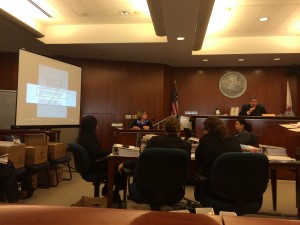
Beno is confronted with her own comments in editing the evaluation team’s report on CCSF, comments she and others thought had been destroyed.
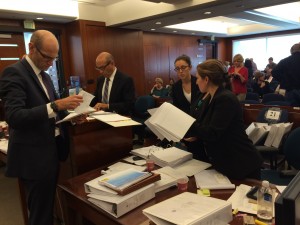
Members of the City Attorney’s team check mountains of documents during a brief break in Beno’s examination.
Leslie Smith – Former Assistant Vice Chancellor of Governmental Relations at CCSF
People’s Examination – Smith’s testimony revolved primarily around CCSF’s response to the Student Success Task Force (SSTF) that sought to implement performance-based funding.
- In August 2011, Smith learned of a SSTF draft and brought it to the attention of CCSF leadership and college constituent groups.
- It was quickly determined the SSTF would restrict access and the narrow the college mission.
- Students studied opposing arguments and publically debated SSTF in the Diego Rivera Theater at an event that was broadcast and recorded.
- CCSF BOT’s passed a resolution opposing the SSTF, after getting input from constituent groups.
- CCSF faculty and students were outspoken at SSTF hearings.
- At the January 2012 BOG meeting, which had strong CCSF presence, public comment rules were arbitrarily changed twice, once without notice. When students became aware of the sudden change, sheriffs were brought in to control the crowd.
- Smith firmly believes the advocacy of CCSF students and faculty was pivotal in removing the harshest of the access-denying provisions from SB 1456, the Student Success Act of 2012.
ACCJC’s Cross-Examination – Very few questions.
Smith could not verify if the ACCJC considered CCSF’s opposition to the SSTF when the Commission made its “Show Cause” decision.
David Bergeron – Former acting Assistant Secretary for Postsecondary Education at the U.S. Department of Education (DOE) and expert witness on accreditation.
People’s Examination – As examination began, ACCJC lawyers tried to disqualify Bergeron on grounds he lacked experience with accreditation. More disqualification attempts and many objections to his testimony were made with respect to a DOE letter which limited Bergeron’s testimony from discussions about private and non-public information or DOE policies. Judge Karnow made special mention he would not be enforcing Federal limitations and testimony should remain within the scope of the letter. Bergeron stated he would not testify on opinions about the ACCJC or its compliance with DOE regulations. The People said Bergeron’s testimony would focus primarily on three areas:
- DOE regulation of accreditation agencies.
- The role of accreditation in education.
- The importance of accreditation in community colleges.
Bergeron outlined the accreditation agency recognition/re-recognition process, timelines, personnel/agencies involved, lengths of recognition, and appeal options. Due the limitations defined in the DOE letter, much of the questioning was predicated on hypothetical scenarios with conditions similar to those encountered by CCSF. Bergeron’s responses affirmed:
- There is a regulatory requirement for agencies to have controls against conflicts of interests or appearances thereof.
- There is an appearance of conflict of interest if the spouse of an accrediting agency staff member serves on a visiting team.
- Placement on a visiting team of an individual from an abutting district, which may gain financially from the failure of a neighboring college, would create a conflict of interest.
- There should be great concern if both “spousal” and “abutting” conflicts occurred simultaneously.
- The remedy is to register a complaint which accreditors are obliged to unbiasedly review and correct.
Bergeron stated the reason for accreditation is to “ensure a high level of public confidence in the quality of education” at an institution. He also defined “academics” – for site team composition – as individuals with daily teaching responsibilities or interactions with students, but said academics vary by type of institution being reviewed. The number of academics on a site team would vary and increase for institutions with a greater focus on education as opposed to research.
ACCJC’s Cross-Examination – Questioning began by addressing “proper notification” and transitioned to supposed conflicts of interests in team composition versus institutional discretion in the selection process. Again hypothetical scenarios similar to those at CCSF guided the testimony.
Bergeron stated it would be a stretch for him to consider an “administrative assistant” an “academic”.
Barbara Beno – President of ACCJC
People’s Examination – At first confident, Beno’s demeanor gradually deflated, as her position was deconstructed piece by piece. Confronted with her own memos, emails, documents and presentations, she had no choice but to confirm that she had skewed the final version of the visiting team’s report, and that ACCJC violated its own due process policy.
Ron Flynn for the City Attorney brilliantly directed the witness. He first asked Beno whether completion and retention/persistence were measures used by the ACCJC to evaluate a college’s effectiveness. After she claimed that achieving completion of 30 units was not something ACCJC used or “trained on,” she was confronted with a PowerPoint she had written and presented recently at a conference, specifically stating that completion of 30 units is an important measure for colleges to demonstrate success. At this point she changed her testimony.
Next, she was questioned about the Commission’s role in supporting the SSTF and subsequent legislation. She confirmed that she had pushed ACCJC to publicly support SSTF and AB 1456 in late 2011 and early 2012. She confirmed that she knew that some member colleges had “sensitivities” (from a December 8, 2011 email). When asked whether she knew that CCSF was one of the colleges with “sensitivities” to this issue, she said she’d had no idea until the CFT complaint in 2013. CAO: “In 2011 what were you referring to when you said some colleges were more or less sensitive?” Beno: “I went to an open session (at a conference) where they discussed the task force. I sat in the room while people raised their hands and mentioned sensitivities.” CAO: “Do you know if City College was at that meeting?” Beno: “I have no idea”
The CAO next turned to the issue of conflict of interest, asking whether Beno discussed any part of the CCSF accreditation review with her husband, who was one of the members of the review team. Beno: “He told me that he had been invited by the Commission.” CAO: “What did you say to him when he told you?” Beno: “Oh, have fun!” She denied having any further discussion of the matter with her husband.
Leading out of this line of questioning, Beno was then asked about the process by which a draft report goes through comments and revisions and then a final version is sent from the president of ACCJC to the college. CAO: “On May 2 of 2013, did you write to Dr. Serrano (the chair of the visiting team) and ask her NOT to send the report to CCSF before you read it?” Beno: “Yes”
The CAO then made two final key points: first that Beno had suggested changes to the substance of the draft, and that those changes were incorporated into the final report. The changes consisted of removing language that pointed to CCSF’s strong, passionate commitment to correcting any deficiencies. In addition, language stating that the college met certain standards was changed to say that CCSF did not meet the standard. Beno admitted that she had specifically asked for those changes, and that the changes were made in response to her suggestions.
Finally, the CAO asked Beno about the ACCJC policy toward fair treatment of colleges under sanction. As of 2011, the language says: If the Commission’s action lists any deficiency that was not noted in the team report and that could lead to a sanction…they will afford the institution additional time for the institution to respond in writing before making a final decision.
Pressed hard on whether or not the ACCJC had given CCSF additional time to respond in writing to the termination decision (as stipulated above), Beno tried numerous times to refer back to the documents, to avoid answering the question, to qualify or rephrase. Finally the judge redirected her to answer the question. Judge Karnow: “He’s not actually asking you a question about a text. He’s asking you what happened in the real world.” CAO: “Did you afford the college additional time to respond in writing to the determination that you would terminate accreditation?” Beno (almost inaudible) “no.”
ACCJC’s Cross-Examination – There was no time for cross-examination, expected to begin Wednesday morning. Beno will also be called as a witness for the ACCJC later in the week.


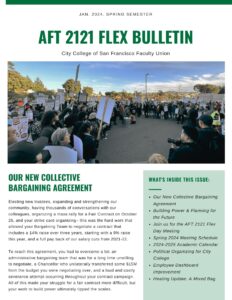
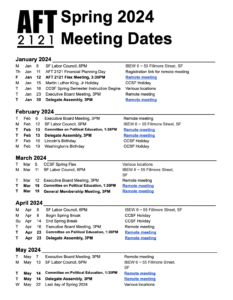
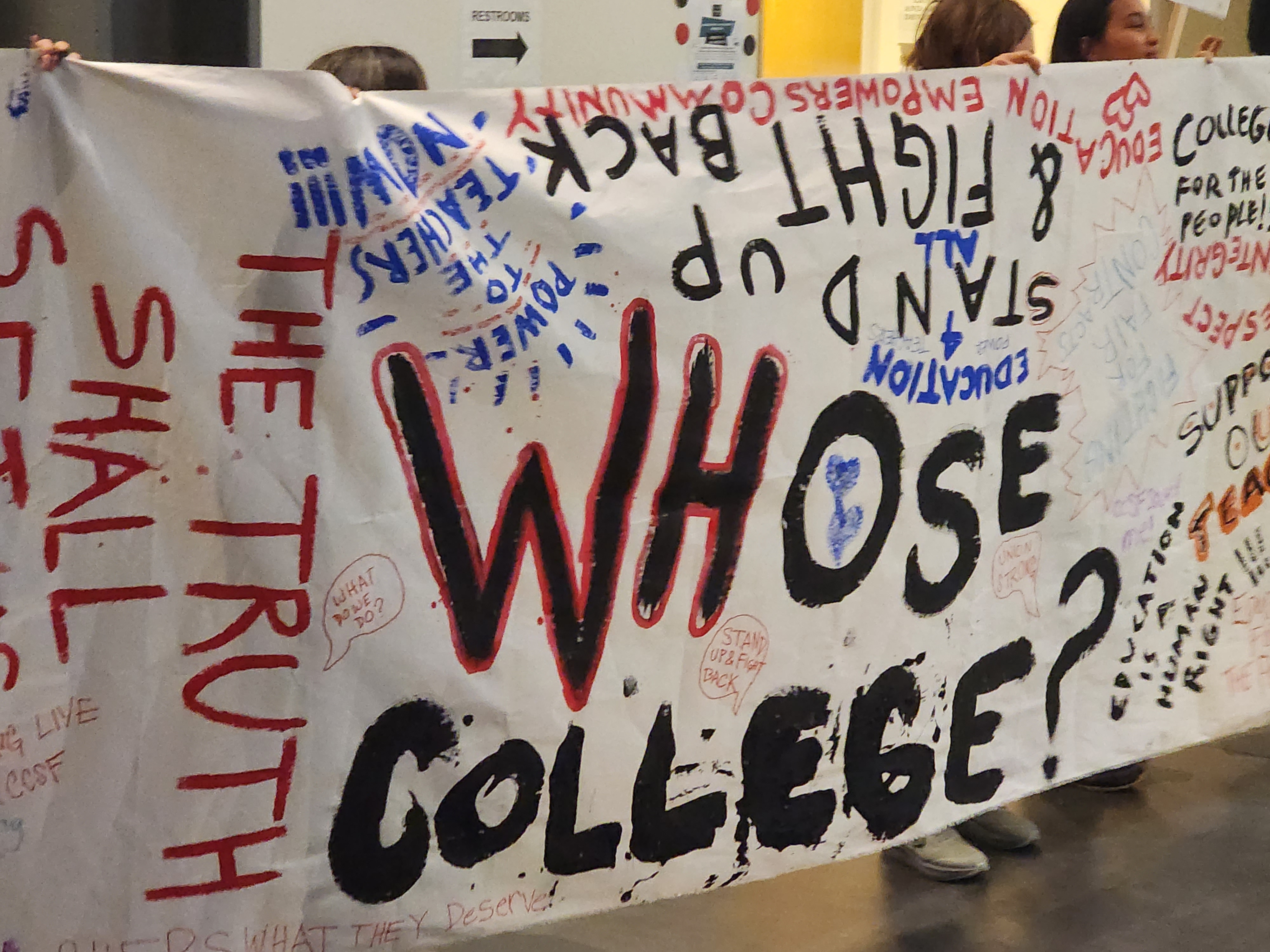
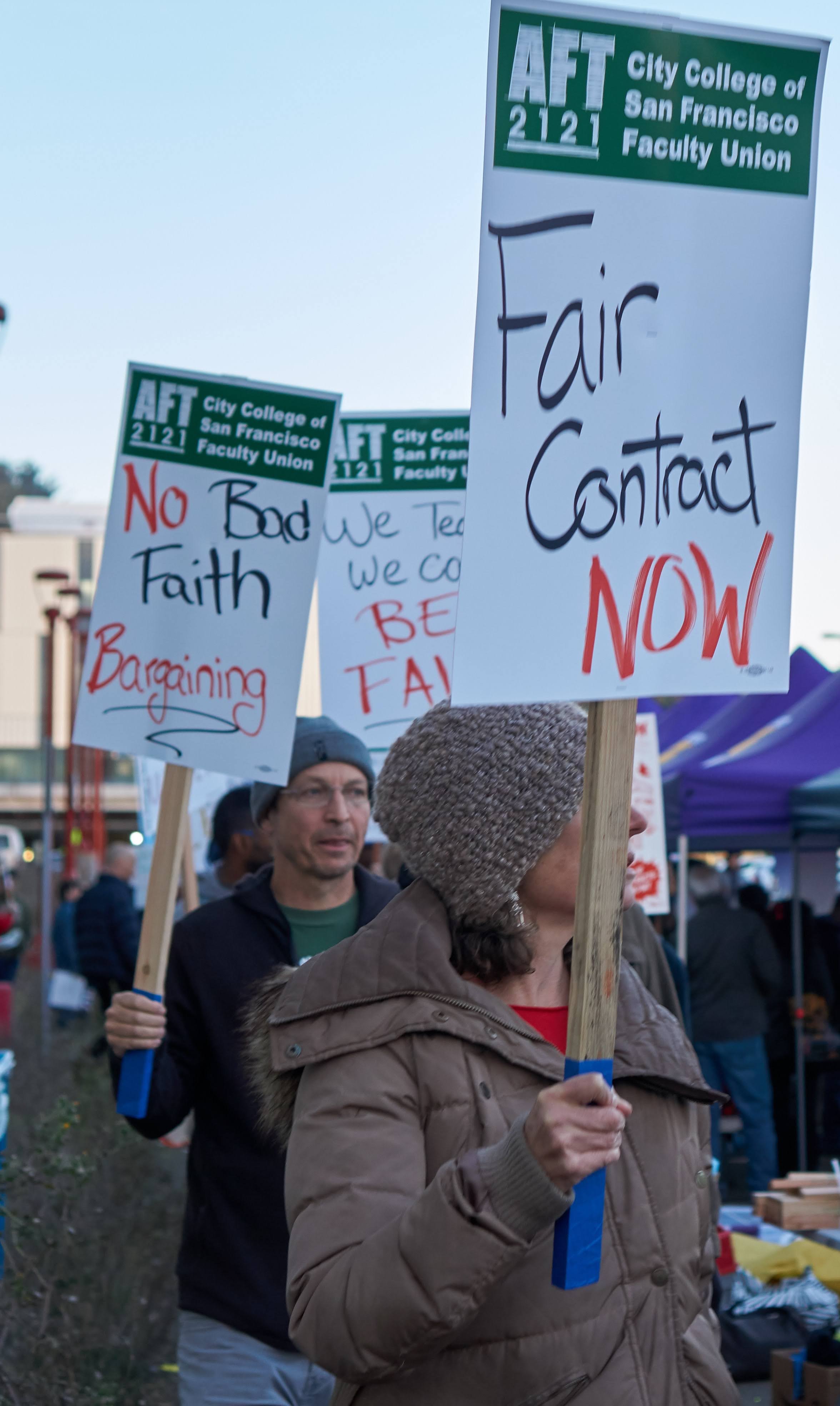
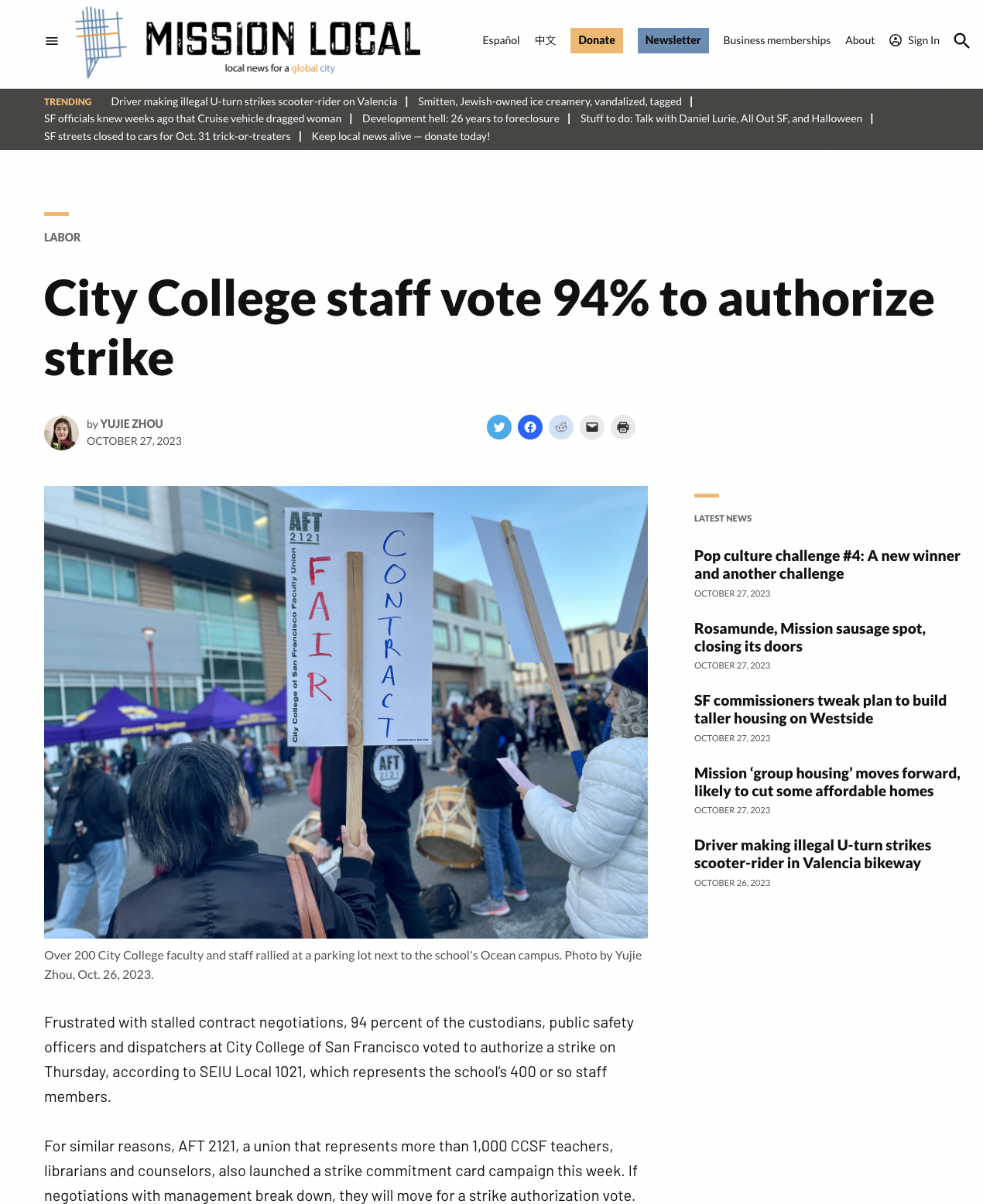
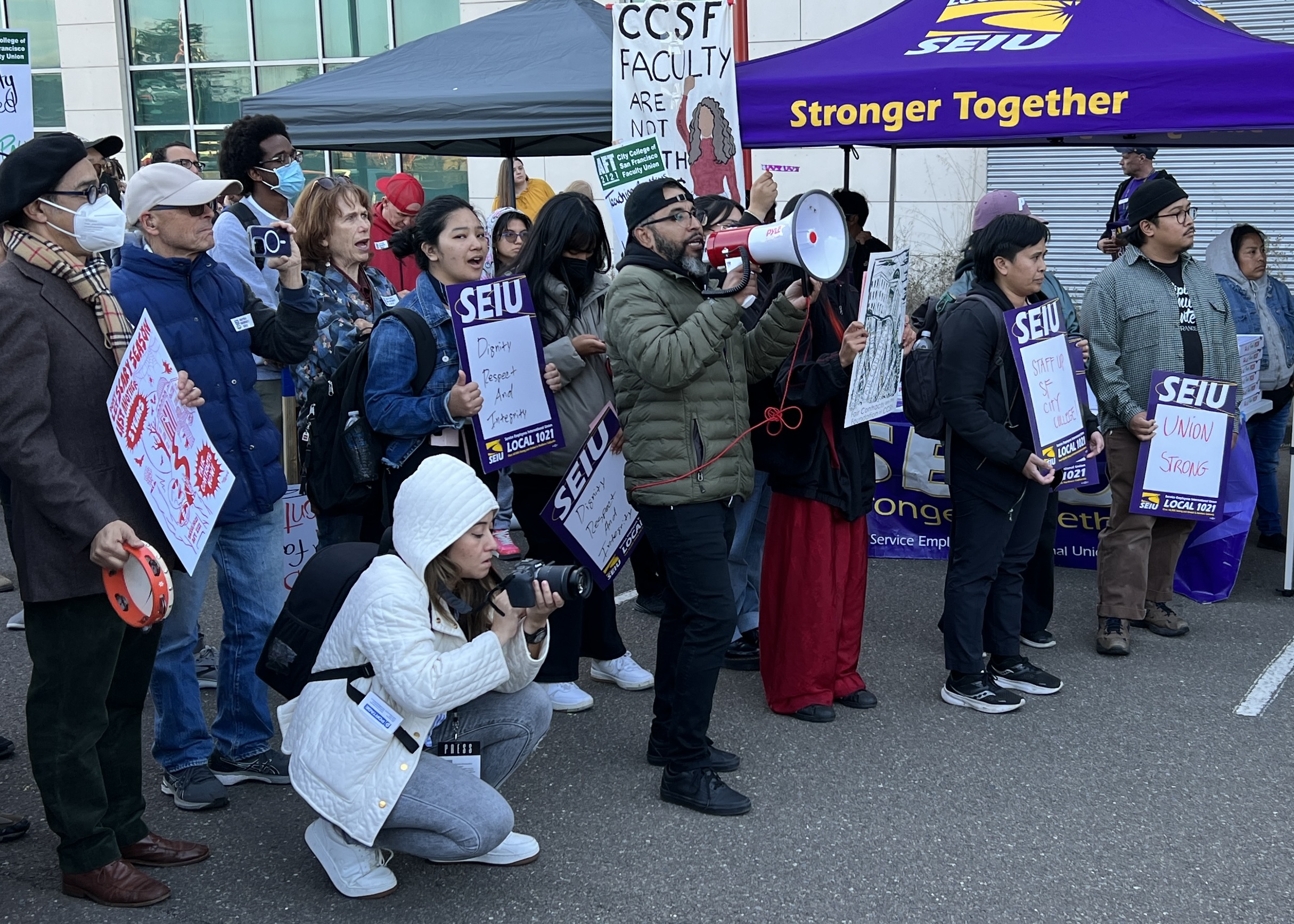
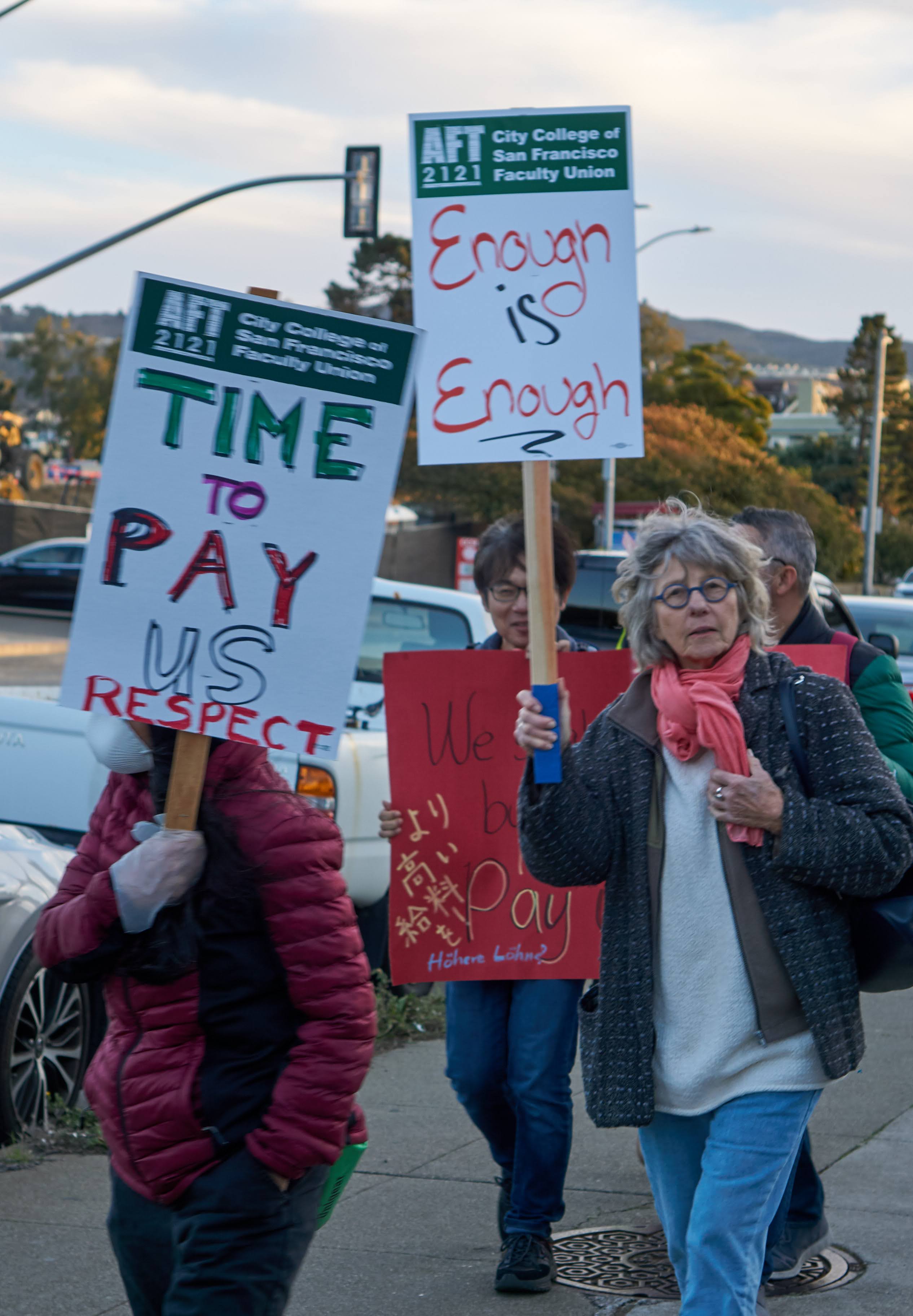
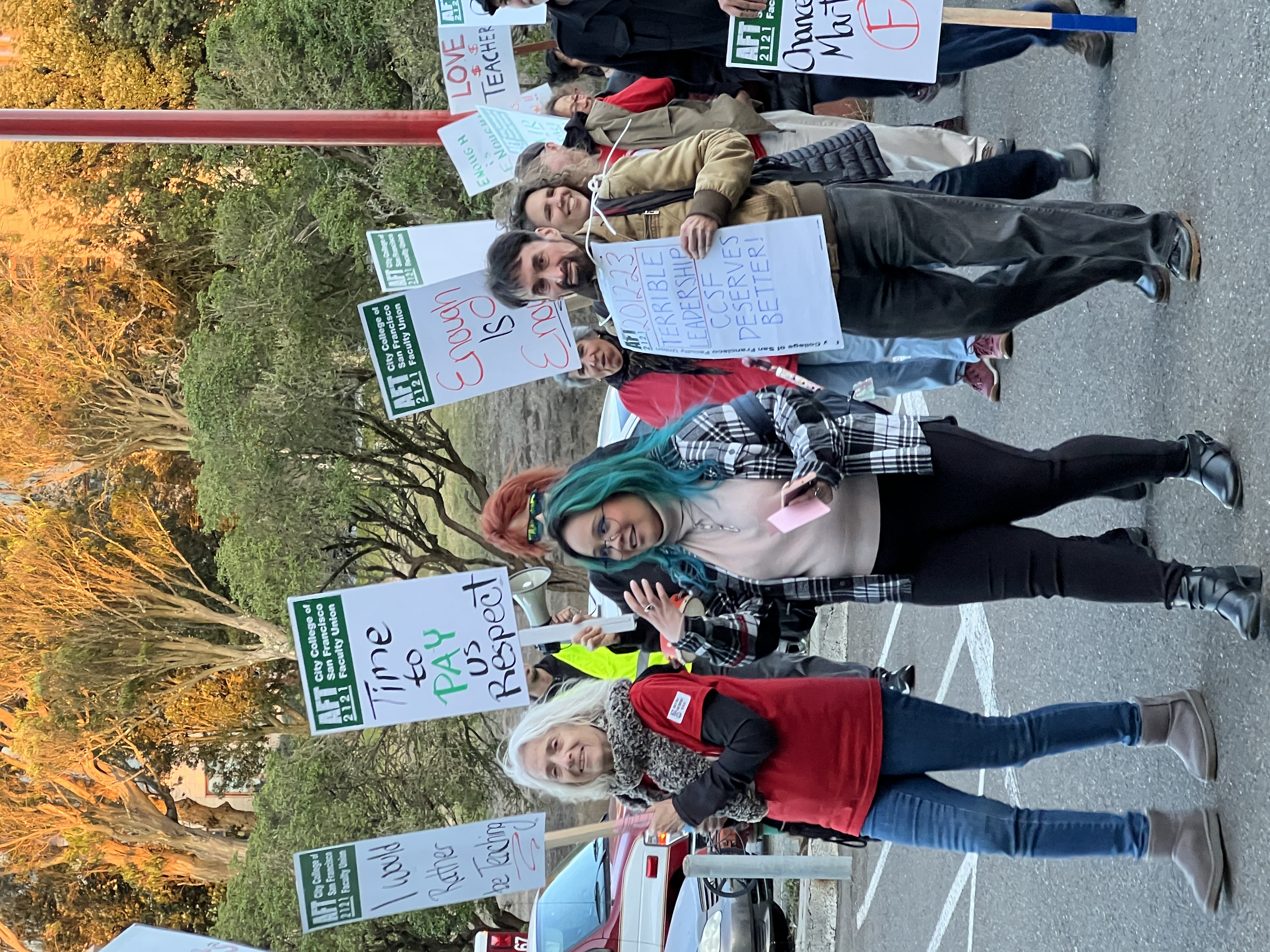
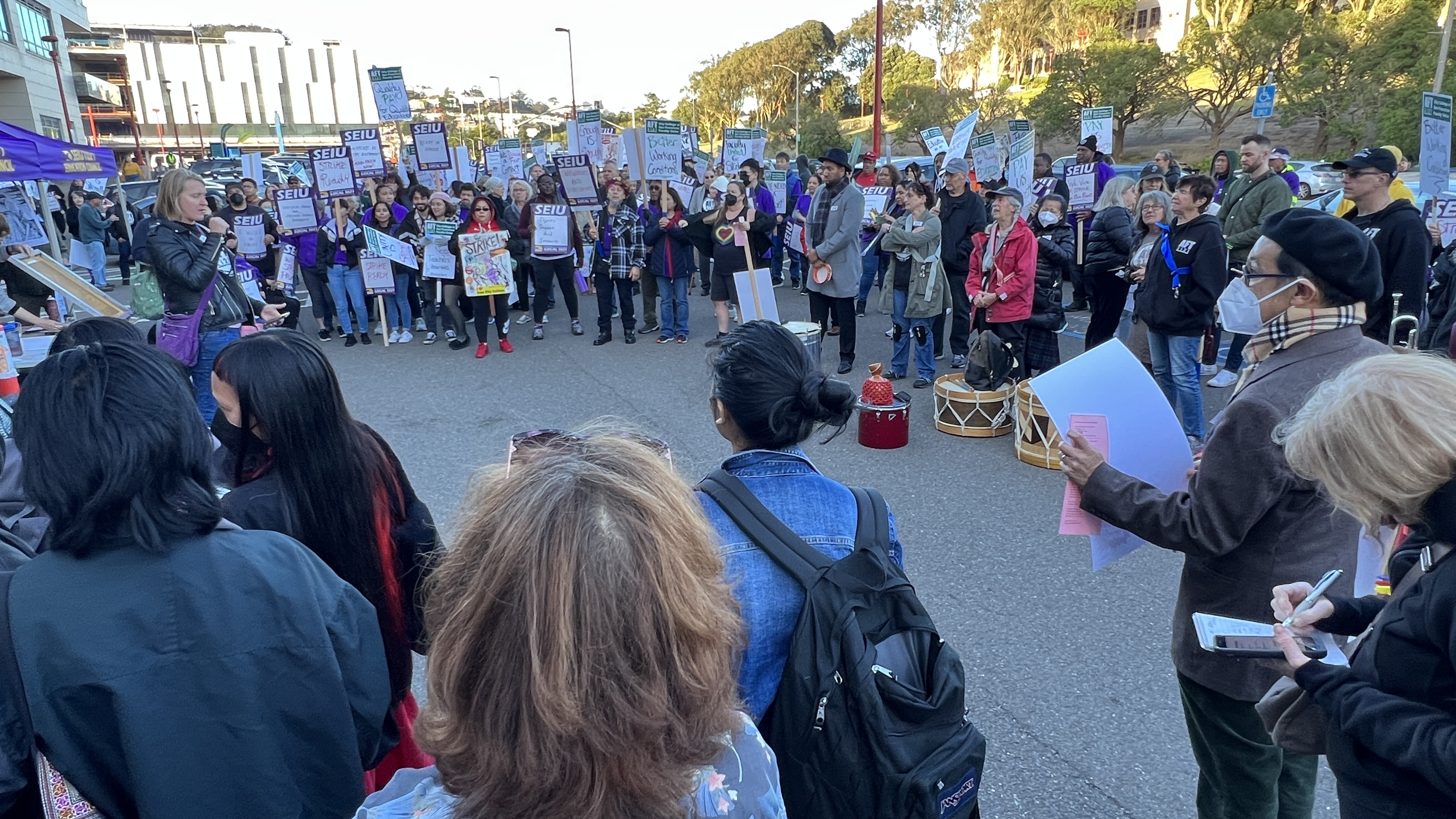
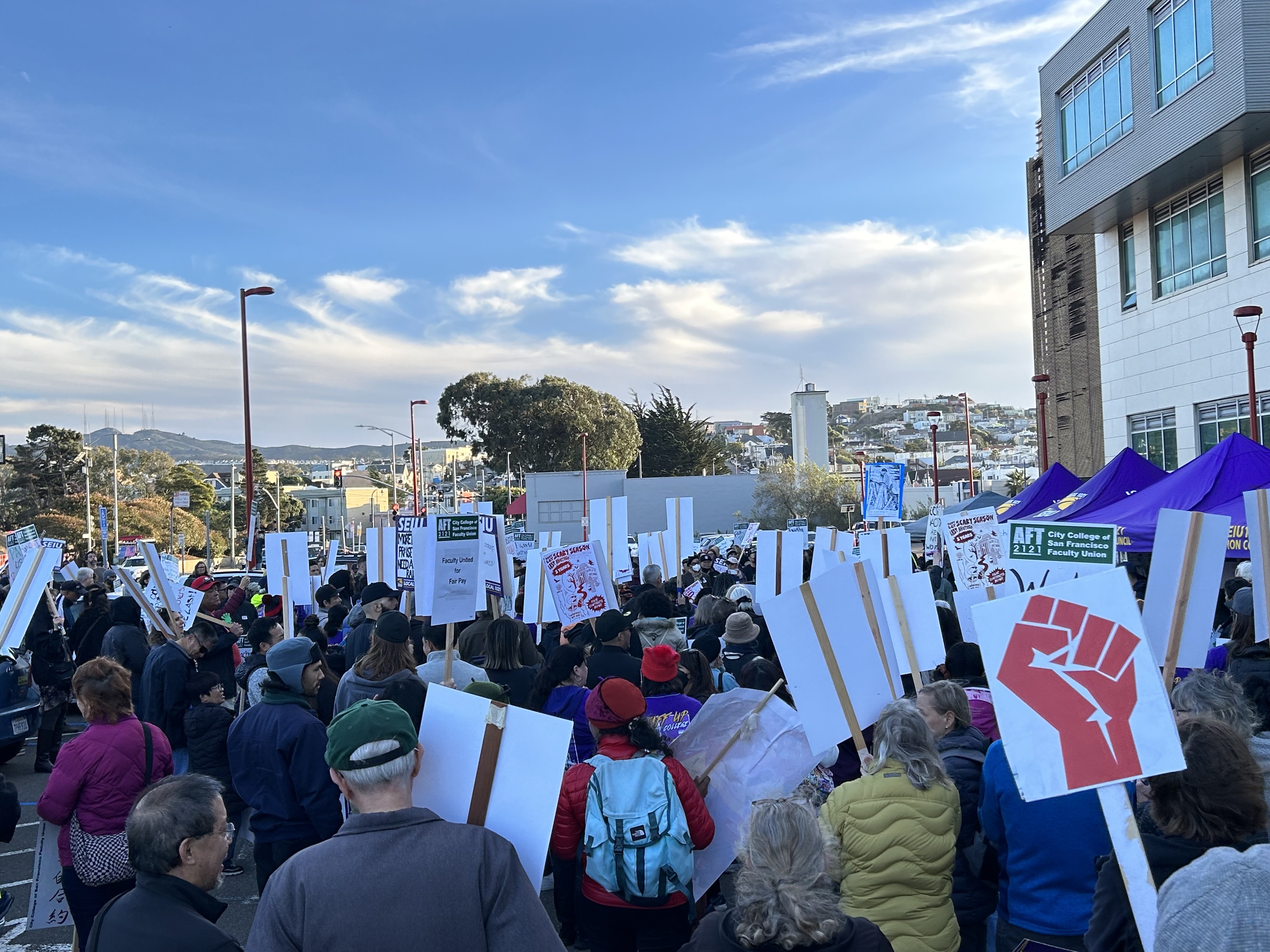
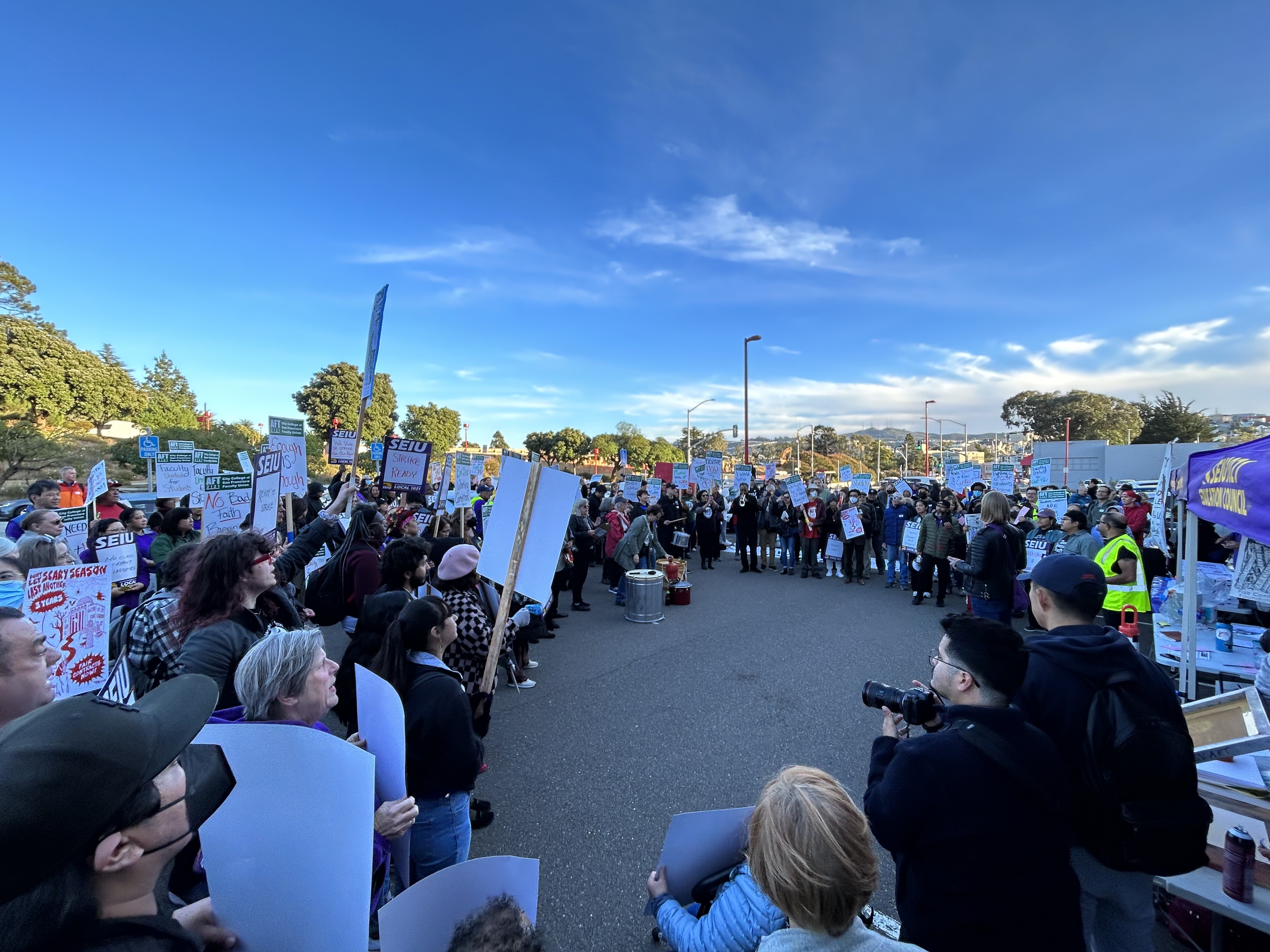
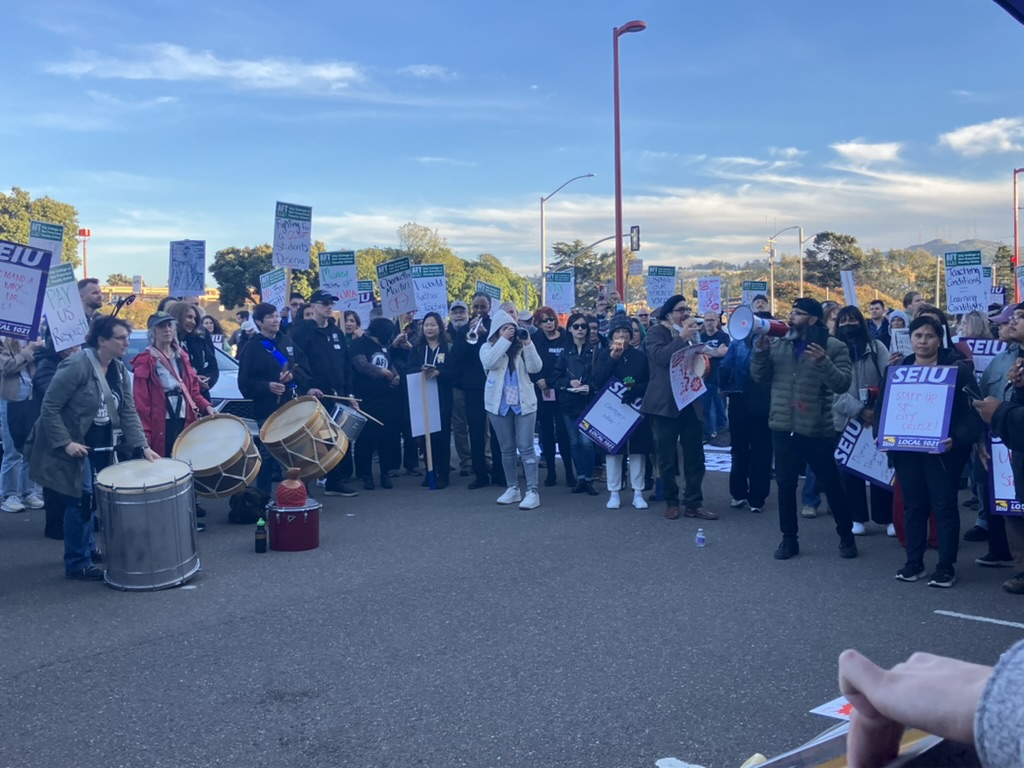
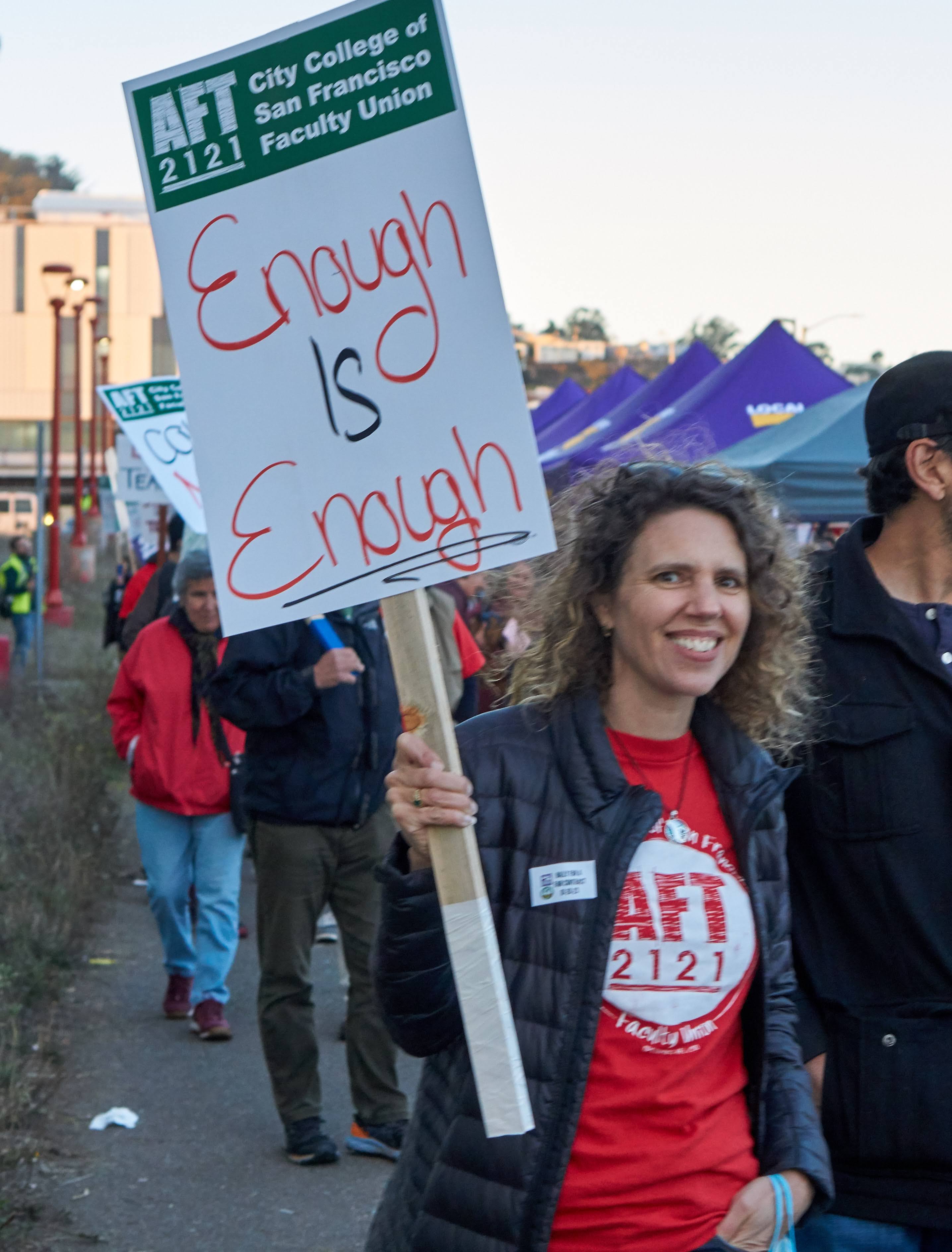

Follow Us!